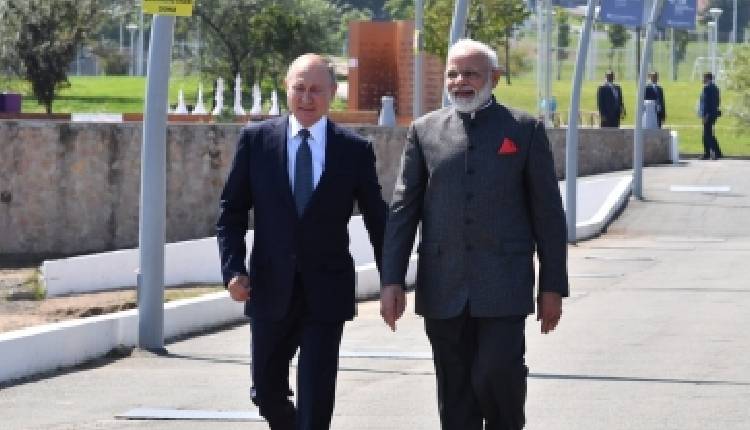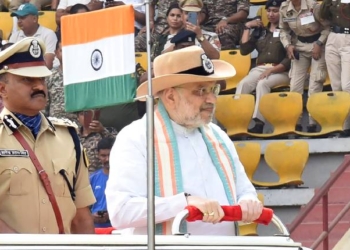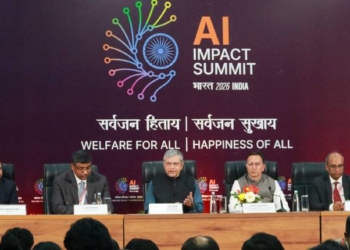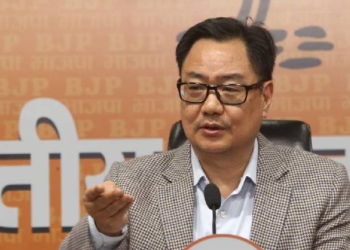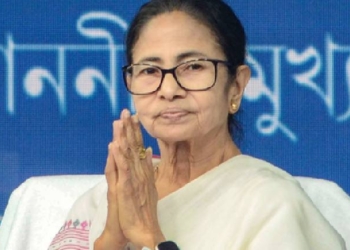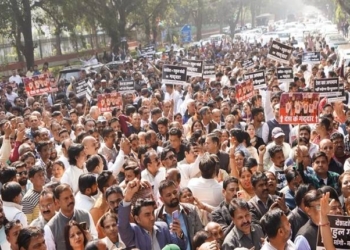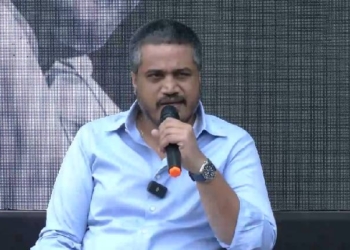New Delhi: Their relationship is a success story in diplomacy’s annals, spanning the Cold War, the end of communism, economic liberalism, the rise and fall of globalism and unipolarity to enter the 21st century with its new set of issues but opportunities too. But India and Russia’s bilateral ties have added a new key paradigm even as they maintain a special continuity.
How this plays out as the third decade of the new century hits a turbulent phase with tectonic global political shifts, conflicts, terrorism, climate change, economic protectionism, and failed states has to be seen, particularly as global institutions are questioned over their dated representation, and new regional and multilateral organisations come up. Particularly.
It is this and other related and contingent issues of the Indian-Russian relationship that a group of scholars from both countries seek to weigh on in “INDIA and Russia – Enduring Trust in a Transformational Era” (Har-Anand Publications Ltd., pp 175).
However, the transformations have not shaken the trust, as the book’s editor, Dr Lydia Kulik, stresses.
Kulik, the Head of India Studies at the Moscow School of Management, Skolkovo, and Senior Research Fellow of the Russian Academy of Sciences’ Institute of Oriental Studies, notes that 2024 was “an eventful year” for the bilateral relationship.
The foundation for this, she notes, was laid by the fairly lengthy visit of India’s External Affairs Minister S. Jaishankar to St Petersburg in December 2023, and then, Prime Minister Narendra Modi’s dual visits in the year — his first foreign tour in July soon after winning his third Lok Sabha elections, during which he was hosted by President Vladimir Putin at his dacha, and then, again after a few months for the BRICS Summit in Kazan.
However, besides the diplomatic visits, there were a host of business events in both countries, Kulik notes, showcasing the paradigm shift where the diplomatic and military-technical-focused connections of the Soviet period have transformed into a more broad-based relationship where economic and transport linkages and emerging technology are as important, if not more the older considerations.
This change is a fundamental core of this work, with half of its total 10 essays by distinguished Russian and Indian experts dwelling on bilateral economic, logistics, and scientific-technological cooperation. This includes one by Dr Anna Kireeva, Associate Professor of the Department of Asian and African Studies at the Moscow State Institute of International Relations (MGIMO University), on Russia’s approach towards ASEAN and a framework for cooperation between the two countries and the key Southeast Asian grouping.
Ambassador Pankaj Saran, a former Indian envoy to Russia, sets the ball rolling with a succinct but masterly summation of the history of India-Russia bilateral ties, before dwelling on the drivers and determinants that will shape their future trajectory. Against the backdrop of a reviving multipolar world, Dr Tatyana Shaumyan, the Head of the Centre of Indian Studies at the Russian Academy of Sciences’ Institute of Oriental Studies, sketches the two countries’ roles and prospects in multilateral groupings like the SCO and BRICS, while presenting the case for the revival of the RIC format — a position also articulated by Russian Foreign Minister Sergei Lavrov recently.
Leyla Turayanova, of the Centre for the Indo-Pacific Region at the Primakov National Research Institute of World Economy and International Relations (IMEMO) of the Russian Academy of Sciences, offers a nuanced Russian perspective on PM Modi’s July Moscow visit, but does not remain confined to it and goes on to add the perception of his visit to Ukraine in August.
Presenting the key emerging areas of economic and logistics ties are Sergey Komyshan, Executive Director and Member of the Management Board, Sibur, who accounts for the two countries’ cooperation in trade and investment in the 21st century, senior banker and former Russian Deputy Finance Minister Dr Sergey Storchak weighs in on the equally vital area of financial cooperation, which he terms as “an example of compromise and mutually beneficial solutions”.
Dr Julia Melnikova, the Programme Manager, Asia and Eurasia, at the Russian International Affairs Council, brings an incisive look to the sphere of connectivity in the bilateral sphere, extending from the Eurasian region to further up north, to the frozen expanses of the Arctic, a growing area of interest for New Delhi.
A related area of science and technology, spanning from space to the digital realm, and the challenges, is discussed pithily by Dr Olga Ustyuzhantseva and Dr Ivan Danilin of the IMEMO.
Complementing Dr Kireeva, Dr Aleksei Zakharov of the Centre of Indian Studies sketches Russia’s reviving interest in South Asia after a period of remaining dormant.
In another acute study, Aryaman Nijhawan of the ORF, the second Indian contributor, brings up the key issue of the Russian-Ukrainian conflict in the bilateral context, especially as far as its diplomatic and technological aspects are concerned.
The studies may appear brief, but while being accessibly lucid, they pack a large volume of insight into a key relationship, important for both the countries, the Eurasian region, and the world at large. Hence, both scholars and laymen will benefit from this work, slim in its appearance but weighty in content.
(Vikas Datta can be contacted at vikas.d@ians.in)
(IANS)




